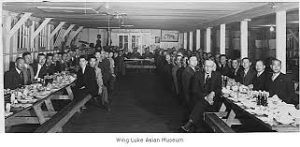“It didn’t matter if you were a U.S. citizen, it didn’t matter if you were born as an American, all that mattered was that your skin color was dark… and therefore you were seen as a threat because of Pearl Harbor.”
– Emily Tani-Winegarden, Grand Daughter of Tad and Yoshi Tani who were both Incarcerated at the Minidoka Internment Camp in Southern Idaho
In one of the United States’ greatest Fair Housing violations, President Franklin Delano Roosevelt issued Executive Order 9066 on February 19, 1942 which sentenced nearly 120,000 innocent Japanese Americans to incarceration in internment camps for the following 2-4 years. Over two-thirds of the people of Japanese ethnicity who were incarcerated — almost 70,000 — were American citizens. Many of the rest had lived in the country between 20 and 40 years.
No Japanese-American citizen or Japanese national residing in the United States was ever found guilty of sabotage or espionage.
In December 1982, the Commission on Wartime Relocation and Internment of Civilians concluded that the incarceration of Japanese Americans had not been justified by military necessity. The report determined that the decision to incarcerate was based on “race prejudice, war hysteria, and a failure of political leadership.”
